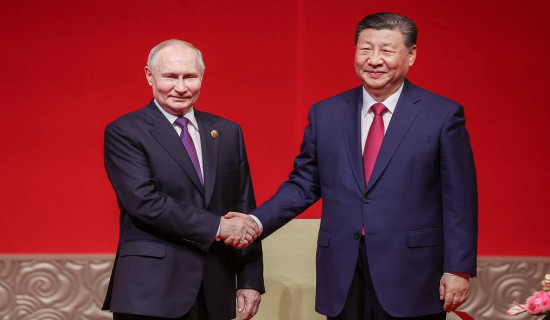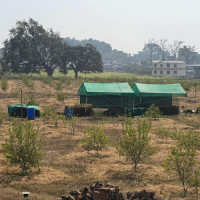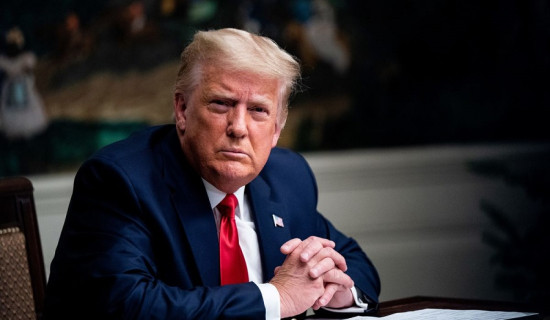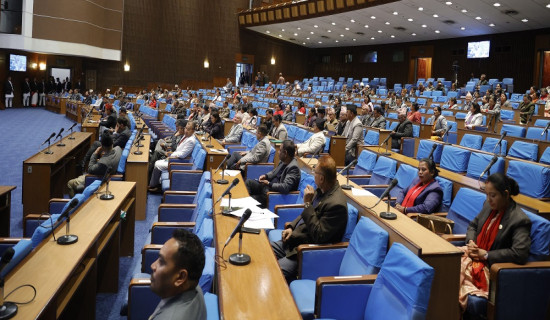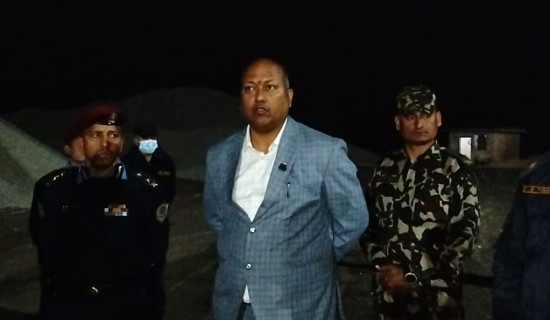- Tuesday, 11 February 2025
West Bank Palestinians face more Israeli barriers, traffic and misery
West Bank, Feb. 11: Abdullah Fauzi, a banker from the northern West Bank city of Nablus, leaves home at 4 a.m. to reach his job by 8, and he's often late.
His commute used to take an hour — until Hamas' attack on Israel on Oct. 7, 2023, after which Israel launched its offensive in the Gaza Strip.
The Israeli military also ramped up raids against Palestinian militants in the northern West Bank, and diverted its residents through seven new checkpoints, doubling Fauzi's time on the road.
Now it's gotten worse.
Since the ceasefire in Gaza between Israel and Hamas took effect, Fauzi's drive to the West Bank's business and administrative hub, Ramallah, has become a convoluted, at least four-hour wiggle through steep lanes and farm roads as Israel further tightens the noose around Palestinian cities in measures it considers essential to guard against militant attacks.
"You can fly to Paris while we're not reaching our homes," the 42-year-old said from the Atara checkpoint outside Ramallah last week, as Israeli soldiers searched scores of cars, one by one.
"Whatever this is, they've planned it well," he said. "It's well-designed to make our life hell."
A ceasefire begets violence
As the truce between Israel and Hamas took hold on Jan. 19, radical Israeli settlers — incensed over an apparent end to the war and the release of Palestinian prisoners in exchange for Israeli hostages — rampaged through West Bank towns, torching cars and homes.
Two days later, Israeli forces with drones and attack helicopters descended on the northern West Bank city of Jenin, long a center of militant activity.
More checkpoints started going up between Palestinian cities, slicing up the occupied West Bank and creating choke points the Israeli army can shut off on a whim. Crossings that had been open 24/7 started closing during morning and evening rush hours, upturning the lives of hundreds of thousands of people.
New barriers — earthen mounds, iron gates — multiplied, pushing Palestinian cars off well-paved roads and onto rutted paths through open fields. What was once a soldier's glance and head tilt became international border-like inspections.
Israel says the measures are to prevent Hamas from opening a new front in the West Bank. But many experts suspect the crackdown has more to do with assuaging settler leaders like Bezalel Smotrich, the finance minister and an important ally of Prime Minister Benjamin Netanyahu, who has threatened to topple the government if Israel does not restart the war in Gaza.
"Israel now has a free hand to pursue what it has wanted to in the West Bank for a long time: settlement expansion, annexation," said Tahani Mustafa, a senior analyst at the International Crisis Group. "It was considered a potential trade-off."
Asked why Israel launched the crackdown during the ceasefire, the Israeli military said politicians gave the order in part over concerns that the release of Palestinian prisoners — in swaps for Israeli hostages held by Hamas — could raise tensions in the West Bank.
The checkpoints all over the West Bank, it said, were "to ensure safe movement and expand inspections."
"Checkpoints are a tool we use in the fight against terror, enabling civilian movement while providing a layer of screening to prevent terrorists from escaping," said Lt. Col. Nadav Shoshani, an Israeli military spokesman.
Life disrupted
To spend rush hour at an Israeli checkpoint is to hear of the problems it has brought — Palestinian families divided, money lost, trade disrupted, sick people kept from doctors.
Ahmed Jibril said not even his position as manager of emergency services for the Palestinian Red Crescent protects him.
"We're treated like any other private car," he said, describing dozens of cases in which Israeli soldiers forced ambulances to wait for inspection when they were responding to emergency calls.
In one case, on Jan. 21, the Palestinian Health Ministry reported that a 46-year-old woman who had suffered a heart attack in the southern city of Hebron died while waiting to cross a checkpoint.
The Israeli military said it was not aware of that specific incident. But citing Hamas' use of civilian infrastructure like hospitals to conceal fighters, the army acknowledged subjecting medical teams to security checks "while trying to reduce the delay as much as possible in order to mitigate harm."(AP)



